
Net profit of Credit Agricole Bank (Kyiv) amounted to UAH 4.09 billion last year, which is 46.5% or UAH 1.44 billion more than in 2023, the press service of the financial institution reports.
“Crédit Agricole Bank’s net profit for the year amounted to UAH 4.1 billion after taxes at the increased rate of 50% (…) The bank’s financial results demonstrate sustainable development dynamics, disciplined risk management, and customer confidence,” the press release says.
It is noted that Credit Agricole’s net banking income for 2024 reached UAH 9.25 billion, which is 4.9% more than last year.
According to the press release, this is due to the growth of net interest income by 3.9% compared to 2023 to UAH 8.17 billion and increase of the deposit base by 10.9% to UAH 100.1 billion.
It is specified that corporate deposits increased by 9.3% to UAH 79.14 billion, and retail deposits by 17.2% to UAH 20.95 billion.
At the same time, the bank’s fee and commission income decreased by 5.6% to UAH 706 million.
The volume of loans and advances to customers remained almost unchanged in 2024, remaining at UAH 28.16 billion. Loans to businesses in Credit Agricole decreased by 2.8% to UAH 23.60 billion, while loans to individuals increased by 20.6% to UAH 4.55 billion.
“Credit Agricole has strengthened its position as a leader in car lending with a 28% market share in Ukraine. In 2024, the bank disbursed new car loans in the amount of UAH 3.3 billion, which is 50% more than in the previous year, outpacing the market growth rate of 40%,” the press service of the bank noted.
Last year, the bank’s assets increased by 12.9% to UAH 116.93 billion, while liabilities grew by 9.7% to UAH 103.75 billion. Agricole’s operating expenses increased by 11.7% to UAH 2.68 billion.
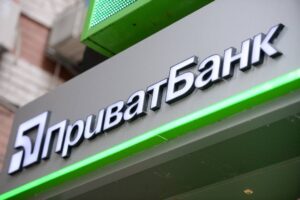
The net profit of state-owned PrivatBank, Ukraine’s largest bank, amounted to UAH 40.141 billion in 2024, up 6% from 2023, the bank said at a briefing in Kyiv on Tuesday.
“Net interest income increased by 12% to UAH 66.89 billion, net commission income by 14% to UAH 27.77 billion,” said Larysa Chernysheva, Deputy Chairman of the Board and CFO, Interfax-Ukraine.
She clarified that the results are preliminary and should be confirmed by an audit, which is expected in March.
According to her, after the audit, the bank will allocate 80% of its net profit for dividends for 2024, which will tentatively amount to UAH 32.113 billion, compared to UAH 30.211 billion last year.
Chernysheva specified that pre-tax profit in 2024 increased by 11.3% to UAH 81.004 billion, while operating expenses increased by 8% to UAH 21.32 billion.
“In 2024, the bank will pay over UAH 40.9 billion in income tax, which has a direct positive effect on the country’s macroeconomic stability,” Deputy Minister of Finance Yuriy Draganchuk emphasized during the briefing.
Since the beginning of last year, Privat’s net loan portfolio has increased by UAH 20.7 billion to UAH 112.8 billion. Funds on customer accounts increased by more than 10% during this time, bringing deposits and balances to UAH 621.6 billion.
PrivatBank ended last year with assets of UAH 761.7 billion, which, according to the National Bank of Ukraine, is 13.4% less than the bank’s total assets as of January 1, 2024, which amounted to UAH 879.8 billion.
The financial institution reported that operating expenses increased by 8% compared to 2023, which is lower than annual inflation.
The bank estimates its active client base at 18.32 million individuals and 910 thousand business clients in 2024. The number of users of the Privat24 mobile application amounted to 13.76 million people.
According to Privat, the bank’s branch network consisted of 1163 outlets at the end of 2024, while at the beginning of last year, according to NBU statistics, it had 1132 outlets.
The financial institution’s infrastructure includes 6.86 thousand ATMs and 10.42 thousand terminals. At the same time, the number of Privat’s POS terminals amounted to more than 316 thousand at the end of 2024.
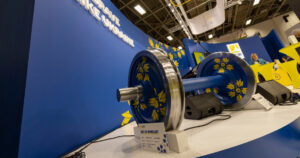
In January-September 2024, PJSC Interpipe Nizhnedniprovsky Pipe Rolling Plant (Interpipe NTZ, Dnipro) reduced its consolidated net profit by 57.6% compared to the same period in 2023, to UAH 501.810 million from UAH 1 billion 183.320 million.
According to the interim report on consolidated financial results for the first nine months of the year, which was reviewed by Interfax-Ukraine, the company reduced its net income by 28.3% to UAH 6 billion 229.471 million.
Retained consolidated earnings as of the end of September 2024 amounted to UAH 4 billion 455.675 million.
As reported, in January-September 2023, Interpipe NTZ received a consolidated net profit of UAH 1 billion 183.320 million, while it ended the same period in 2022 with a net loss of UAH 1 billion 933.986 million.
The company ended 2023 with a consolidated net profit of UAH 748.896 million against a loss of UAH 1 billion 233.944 million in 2022.
“Interpipe is a Ukrainian industrial company, a manufacturer of seamless pipes and railway wheels. Interpipe employs about 9 thousand people.
The company has five industrial assets: “Interpipe Nizhnedneprovsky Pipe Rolling Plant (NTZ), Interpipe Novomoskovsky Pipe Rolling Plant (NMPP), Interpipe Niko Tube, Dnipropetrovs’k Vtormet and Dnipro Steel, an electric steelmaking complex under the Interpipe Steel brand.
The ultimate owner of Interpipe Limited is Ukrainian businessman and philanthropist Victor Pinchuk and his family members.
“Interpipe manufactures longitudinal welded pipes with diameters ranging from 152 to 530 mm. Its production capacity exceeds 850 thousand tons.
According to the third quarter of 2024, Interpipe Ukraine LLC owns 12.0902% of its shares, KLW Limited (Cyprus) – 60.8197% and Interpipe Limited (Cyprus) – 21.8405%.
The authorized capital of PJSC Interpipe NTZ is UAH 100 million, with a share price of UAH 0.25.
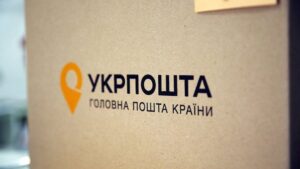
In the fourth quarter of 2024, Ukrposhta JSC increased its net income by 11.5% year-on-year to UAH 3.59 billion, earning a net profit of UAH 97.7 million for the first time since the start of the full-scale invasion, the company reported on its website.
“Net income from sales of products (goods, works, services) for the fourth quarter of 2024 amounted to UAH 3,591.6 million, which is UAH 262.3 million, or 6.8% less than the plan and UAH 370.9 million, or 11.5% more than the actual data for the fourth quarter of 2023,” the interim report on the company’s website says.
It is reported that the failure to fulfill the revenue plan is due to the fact that Ukrposhta was unable to provide services in full in the regions where hostilities are taking place and in the temporarily occupied territories.
At the same time, a number of basic services have seen an increase in sales, which has made it possible to ensure revenue growth compared to the same period last year.
It is noted that during the fourth quarter of 2024, Ukrposhta received 22.7 million pieces of written correspondence, 13.3 million parcels and 23.3 million payments for domestic and international shipments.
Ukrposhta’s EBITDA in the last quarter of 2024 was positive and amounted to about UAH 200 million.
During this period, the foundation was laid for the renewal of the company’s logistics network and IT infrastructure, Ukrposhta said in its interim report.
“We are confidently looking forward to 2025, the year of the company’s radical renewal, achieving positive financial results and expanding the company’s activities in new directions to provide Ukrainians with basic services under any circumstances on 100% of the territory of our country,” the document says.
It is noted that in the fourth quarter, Ukrposhta fulfilled its debt obligations to creditors. In addition, at this time, it was completing the transition to a new centralized structure without separate branches and continued to work on the implementation of strategic investment projects, the key of which are transition to mobile branches in rural areas (with the financial support of the European Bank for Reconstruction and Development); automation of mobile branches, which will allow Ukrposhta to fully automate its network; upgrade of critical back- and transactional IT systems to improve the quality of service delivery (USC, Track & Trace, BePost); a new CRM system, which will help the company estimate the number of real customers.
“Today, the customers who are in the subscription database and those who pay fees and receive parcels are two different categories of customers,” the report says.
According to the report, Ukrposhta plans to launch a new mobile client application in the first quarter of 2025.
Last year, in the fourth quarter, Ukrposhta operated 5219 stationary and 2063 mobile outlets. The company’s average number of employees was 28,945, including 5,950 postal operators and 5,834 postmen. The average salary of a full-time employee in the reporting period was UAH 17,872.
Earlier, Ukrposhta CEO Ihor Smelyansky said in an exclusive interview with Interfax-Ukraine that the company ended the fourth quarter of 2024 with a profit for the first time since the start of the full-scale invasion, but despite improving EBITDA and operating income, it has a “paper” loss for the whole of 2024.
Earlier it was reported that in January-September 2024, Ukrposhta JSC increased its net income by 12.28% compared to the same period in 2023 – up to UAH 9.38 billion, reducing its loss by 4.9% to UAH 565.64 million.
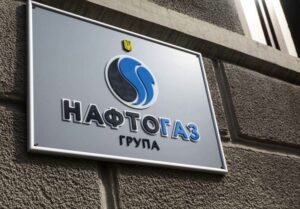
The consolidated profit of Naftogaz Group in January-September 2024 increased by one and a half times (by UAH 8.014 billion) compared to the same period last year – up to UAH 23.304 billion.
According to the consolidated financial statements published on Naftogaz’s website, its revenue for the first nine months increased by 20.3% (by UAH 33.577 billion) to UAH 199.195 billion, gross profit by 2.1 times (by UAH 33.862 billion) to UAH 65.104 billion, and operating profit by 28.4% (by UAH 7.17 billion) to UAH 32.375 billion.
“Naftogaz Group companies continue to operate smoothly despite all the current challenges. We ensure stable growth in hydrocarbon production and improve our financial performance. I am grateful to the entire team for these results,” said Roman Chumak, Acting CEO of the company.
Also, in January-September 2024, Naftogaz enterprises paid almost UAH 67 billion in taxes to the budget, the group supplies natural gas to almost 12.4 million households, continuing to supply gas at a fixed tariff under PSO.
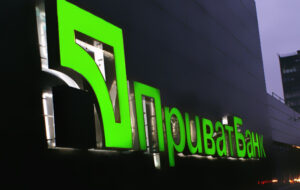
In October 2024, state-owned PrivatBank cut its net profit by 2.6 times compared to September, to UAH 1 billion 911.5 million, retaining its leadership among the five most profitable banks in the country, according to the National Bank of Ukraine (NBU).
According to the data, Privat is followed by Oschadbank, which in October increased its net profit by 43.1% to UAH 939.79 million compared to the previous month. Universal Bank (monobank) rounded out the top three, increasing its profit by 68.5% year-on-year to UAH 725.37 million.
It is followed by OTP Bank with UAH 648.71 million (-5.7% compared to September) and Ukrsibbank with UAH 601.30 million (+24.8%).
The second five most profitable banks in October were led by Raiffeisenbank, which increased its net profit in October by 4.7% compared to September to UAH 561.99 million. The list also includes: City Bank – UAH 533.94 million (+16.3%), FUIB – UAH 518.17 million (+2.3%), Credit Agricole Bank – UAH 380.72 million (+1%) and Kredobank – UAH 209.66 million (in September – loss of UAH 57.98 million).
The number of banks whose net profit exceeded UAH 100 million decreased from six in September to three in October: Sense Bank – UAH 204.22 million (-78.2%), Ukrgasbank – UAH 170.37 million (-66.1%), and ProCreditBank – UAH 111.50 million (-21.2%).
Five other financial institutions reported net profit of over UAH 50 million in October: A-Bank with UAH 90.37 million, ING Bank Ukraine with UAH 89.59 million, Ukreximbank with UAH 87.63 million, Credit Dnipro Bank with UAH 63.20 million, and Idea Bank with UAH 59.97 million.
At the same time, the three most unprofitable banks in October were Clearing House Bank with a net loss of UAH 90.49 million, Alliance Bank with a net loss of UAH 73.29 million, and Agroprosperis Bank with a net loss of UAH 30.45 million, respectively.
The list of the most profitable banks for the first ten months of this year is also headed by Privat with a large margin – UAH 50 billion 263.4 million, followed by Oschadbank with UAH 12 billion 775.9 million.
They are followed by Raif – UAH 6 billion 713.58 million, Ukrexim – UAH 5 billion 959.42 million, FUIB – UAH 5 billion 702.26 million, Ukrsib – UAH 5 billion 641.10 million, Credit Agricole – UAH 5 billion 497.69 million, Universal (mono) – UAH 5 billion 139.57 million, Ukrgasbank – UAH 4 billion 843.37 million. OTP Bank closes the top ten leaders in terms of profit in January-October with UAH 4 billion 820.43 million in net profit.
As for unprofitable banks, there are 10 out of 62 of them in Ukraine as of ten months of this year. Pravex Bank has the worst result at UAH 150.29 million, followed by Grant Bank at UAH 65.45 million and Industrialbank at UAH 38.42 million.
In total, in January-October 2024, the net profit of banks amounted to UAH 125.55 billion, which is 2.3% more than the result for the same period last year. At the same time, in October, the net profit of the banking system amounted to UAH 7.92 billion, while in September of this year it was UAH 11.55 billion.